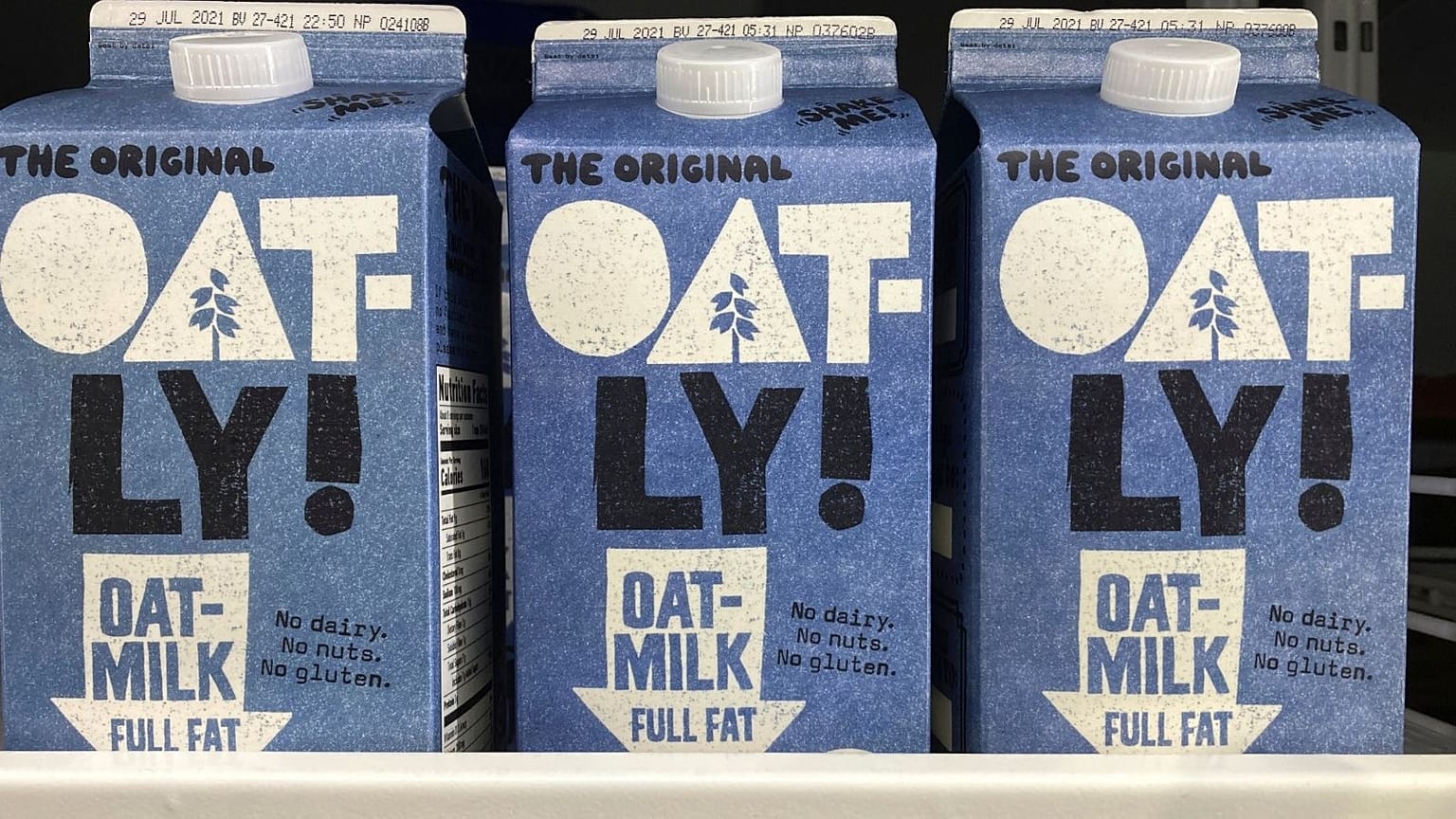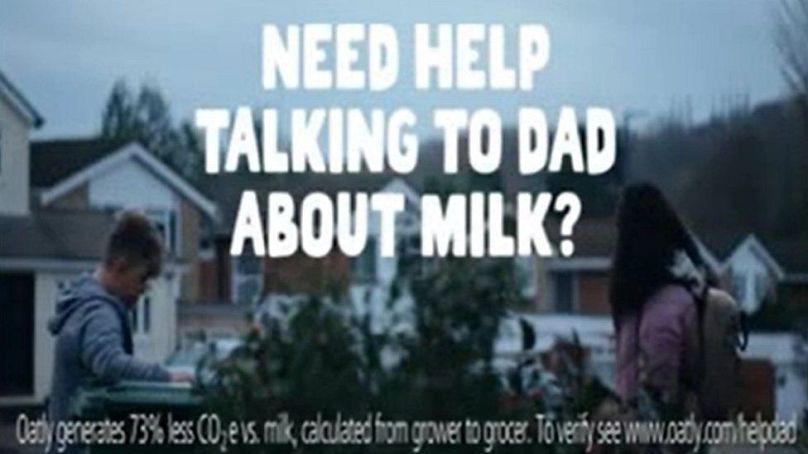But one claim that food’s annual emissions could be cut by 49 per cent if the world went vegan was backed up by evidence.
Oatly is in hot water again over the bold environmental claims in its adverts.
 ADVERTISEMENT
ADVERTISEMENT
 ADVERTISEMENT
ADVERTISEMENT
The UK Advertising Standards Authority (ASA) has banned a number of ads from the Swedish oat milk giant, after receiving more than 100 complaints that consumers were being misled.
Though the alt-milk brand has proud green credentials - calculating the climate footprint of every product, for example - the messages in its latest marketing campaign went too far, the watchdog ruled.
Why were Oatly’s claims contested?
One national newspaper ad from Oatly stated that, “climate experts say cutting dairy and meat products from our diets is the single biggest lifestyle change we can make to reduce our environmental impact.”
While there’s a great deal of truth in this, the watchdog said that readers would understand this to be a “definitive, objective claim that was based on scientific consensus” - whereas only one climate expert was referenced, and he had qualified his opinion by adding “probably”.
In two TV ads - featuring children urging their dads to drop cows milk - viewers were told that “Oatly generates 73 per cent less CO2e (carbon dioxide equivalent) vs milk, calculated from grower to grocer.”
Again, the ASA said this was based on not enough evidence, as consumers would think the comparison applies to all Oatly vs dairy drinks. Instead, the company only calculated the emissions of just one product (its barista edition oat drink) versus whole cow’s milk.
“Dairy and meat industries emit more CO2 than all the world’s planes, trains, cars, boats etc, combined,” read another strong claim that appeared in paid-for ads on Twitter and Facebook.
But a failure to take into account emissions covering the full life cycle of transport, beyond emissions when a vehicle is driven, meant the point was “overstated”, said the ASA.
Oatly is now banned from showing the offending ads and has been told by the advertising watchdog to ensure future environmental claims are clearer and can be fully substantiated.
How has Oatly responded and what has the reaction been on social media?
“It’s clear that we could have been more specific in the way we described some of the scientific data,” Oatly spokesman Tim Knight said.
“We’re a science-based company and take pride in being precise, but we could have been clearer. We talk about these things a lot, because we want to make it easy for people to make an informed switch from dairy to oat drink.”
The ASA received 109 complaints in total, including from the campaign group A Greener World, which promotes sustainable livestock farming systems.
The National Farmers’ Union dairy board chairman Michael Oakes told Farmers Weekly he was pleased by the outcome, adding “Competition is healthy, but it needs to be honest and based on facts.”
A number of other farmers have taken to social media to voice their satisfaction, while some environmentalists are dismayed that the brand didn’t take more care over its claims.
“Talk about doing more harm than good with your purpose marketing,” tweeted one user. “Oatly might still be right in their purpose, but just lost a ton of its belief.”
Others said they hoped the ruling meant they could count on the ASA to call out other examples of greenwashing.
Which Oatly claim was allowed?
One of five complaints brought against the brand was not upheld, however.
In the same newspaper ad that Oatly claimed cutting dairy and meat was the single biggest lifestyle change we could make, was another assertion: “If everyone in the world adopted a vegan diet, it would reduce food’s annual greenhouse emissions by 6.6bn metric tons (a 49 per cent reduction).”
This was based on a comprehensive study, using environmental data from thousands of farms, where the authors did indeed calculate that moving from current diets to a vegan one would reduce food’s greenhouse gas emissions by 49 per cent a year.
Because the claim had been substantiated, it was not considered misleading, and so can still appear in Oatly ads.


















